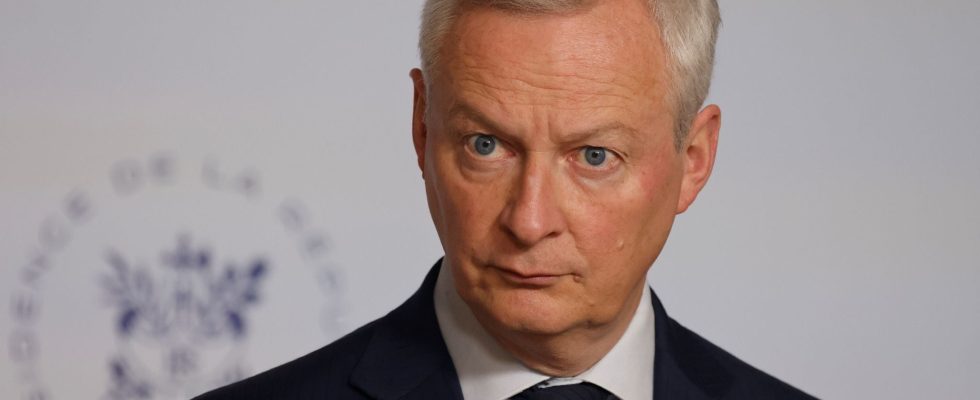The French public deficit continued to widen in 2023, and Brussels is sounding the alarm. This Wednesday, June 19, the European Commission opened the way to procedures for excessive public deficits against seven EU countries. And in the light of the early legislative elections, France is one of the singled out member states.
At the origin of this decision, two main elements. First, the French public deficit which reached 5.5% last year. A deterioration which earned Paris a snub by the American rating agency Standard & Poor’s (S&P) which downgraded its rating from “AA” to “AA-” on May 31.
Concern about the programs of the left and the extreme right
Then, the consequences of the political-institutional crisis into which France has plunged since the announcement of the dissolution of the National Assembly on June 9. Because on the right, as on the left, the oppositions which are leading in the polls, plan to open the spending tap wide. But also, to return to the emblematic pension and labor market reforms recommended by Brussels.
And although Bercy insists that it will be able to return the public deficit below 3% in 2027, the French political climate is enough to undermine the promise of the Ministry of Economy and Finance. Brussels also considers the objective not credible and is counting more on a deficit of 5.3% this year and 5% in 2025 while most European Union countries should get closer to 3% this year.
A procedure provided for by the Stability Pact
This is why the European executive will probably propose to member states at a future meeting of EU finance ministers on July 16 to open an excessive deficit procedure against France, which moved away from the 3% deficit. A rule which was put on hold after 2020 because of the economic crisis linked to Covid and then the war in Ukraine, before being reformed and reactivated this year.
Concretely, the Commission publishes a report which analyzes the causes of the deficit and which includes an opinion on the situation of the country in question. It is on the basis of this document that the EU Council of Ministers will decide whether or not an excessive deficit exists. If this is the case, the Council will address recommendations to the Member State concerned to correct the situation, setting specific deadlines. The latter will be closely monitored by the Commission and the Council who will assess the progress made.
In the event that the State targeted by an excessive deficit procedure does not take effective measures, the European executive can impose sanctions on it. Like fines, unpaid deposits or other financial penalties. In principle, the Stability Pact provides for financial sanctions of 0.1% of GDP per year for countries that do not implement the imposed corrections, or nearly 2.5 billion euros in the case of the Stability Pact. France.
A low-coercive procedure
However, it is clear that these politically explosive punishments were never applied. France, whose debt reaches 110% of GDP, has also been in excessive deficit procedure several times since the creation of the euro at the turn of the 2000s. However, it emerged from it in 2017.
This, even though the public deficit has not been reduced. Enough to annoy more than one on the Old Continent: “When a Member State like France exceeds the deficit threshold of 3% fourteen times in fifteen years, we can no longer speak of exceptional circumstances. Such blatant disregard for the rules budgetary measures should have prompted the Commission to act much earlier”, mocked German conservative MEP Markus Ferber.
But in the corridors of the Commission, we refuse to make any comments on the French political situation. Economy Commissioner Paolo Gentiloni said he was “very confident” in being able to negotiate with countries under “an adjustment path” procedure. And to assure: “We absolutely must not dramatize this.”
